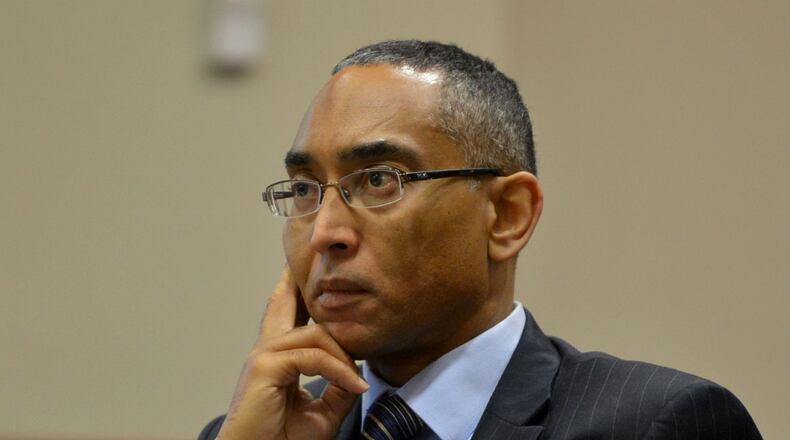A DeKalb County judge has delayed Burrell Ellis’ corruption trial and ruled that a secretly recorded video of the suspended CEO can be used as evidence against him.
On Thursday, Superior Court Judge Courtney Johnson granted Ellis’ request to postpone the trial, initially set for June 2, until Sept. 8. Ellis’ lawyers had said they needed more time to prepare.
But Johnson also sided with prosecutors on what has been one of the case’s most hotly contested issues — whether the secret video of Ellis was captured illegally.
It was taken with a hidden camera inside a pin worn by county purchasing director Kelvin Walton, who was working undercover for the prosecution. According to testimony, Ellis can be heard talking about county vendors and contracts.
Ellis stands indicted on allegations of shaking down vendors for campaign cash, lying under oath, theft, bribery and coercion. He denies all charges.
Explosive accusations surfaced during court hearings in January when Don Geary, DeKalb’s former chief assistant district attorney, testified that District Attorney Robert James called him into his office in mid-2012 and showed him a snippet of the secretly recorded video.
Geary testified that he told James he thought the office was conducting an illegal investigation because the video was obtained without a warrant or court order. Geary said he left the DeKalb office because he did not want to be a part of any illegal conduct. “I didn’t want to get arrested,” he testified.
James, who also testified, denied showing the video to Geary and denied that Geary raised concerns that the office was conducting an illegal investigation. He also contended the video was taken legally because it was captured in a public place — the office of the CEO — where Ellis had no expectation of privacy.
In her ruling, Johnson noted that DeKalb policy generally prohibits the recording of county employees but allows for some exceptions, such as surveillance for official investigations.
It also would have been unreasonable for Ellis to believe the open space of his office was a private place not subject to any kind of surveillance, Johnson said. Members of the public had access to the office and Ellis had invited Walton there, she said.
About the Author
The Latest
Featured

